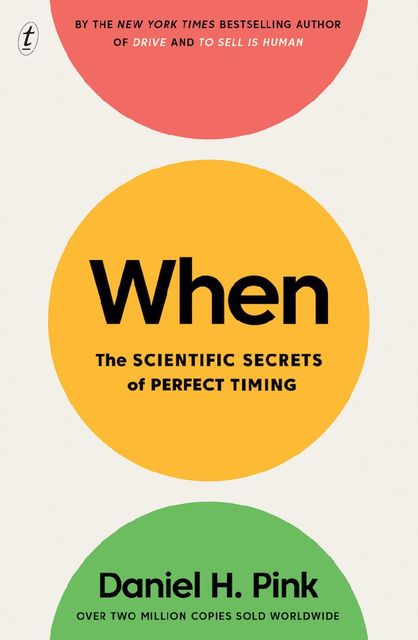When
Den här boken är inte tillgänglig just nu
289 trycksidor
Intryck
- Rhea April Rodeldelade ett intryckför 2 år sedan👍Värt att läsa
- Marko Veselinovicdelade ett intryckför 6 år sedan👍Värt att läsa🔮Oanat djup💡Lärde mig mycket🎯Givande🌴Kiosklitteratur
Citat
- Дина Салаховаhar citeratför 3 år sedanTiming, we believe, is an art.
- Дина Салаховаhar citeratför 3 år sedanOur lives present a never-ending stream of “when” decisions
- masoldadhar citeratför 5 år sedanFirst, our cognitive abilities do not remain static over the course of a day. During the sixteen or so hours we’re awake, they change—often in a regular, foreseeable manner. We are smarter, faster, dimmer, slower, more creative, and less creative in some parts of the day than others. Second, these daily fluctuations are more extreme than we realize. “[T]he performance change between the daily high point and the daily low point can be equivalent to the effect on performance of drinking the legal limit of alcohol,” according to Russell Foster, a neuroscientist and chronobiologist at the University of Oxford.15 Other research has shown that time-of-day effects can explain 20 percent of the variance in human performance on cognitive undertakings.16 Third, how we do depends on what we’re doing. “Perhaps the main conclusion to be drawn from studies on the effects of time of day on performance,” says British psychologist Simon Folkard, “is that the best time to perform a particular task depends on the nature of that task.”
fb2epub
Dra och släpp dina filer
(upp till fem åt gången)


